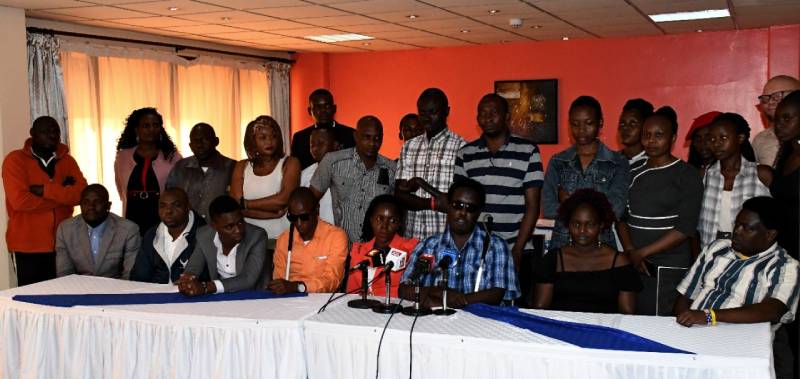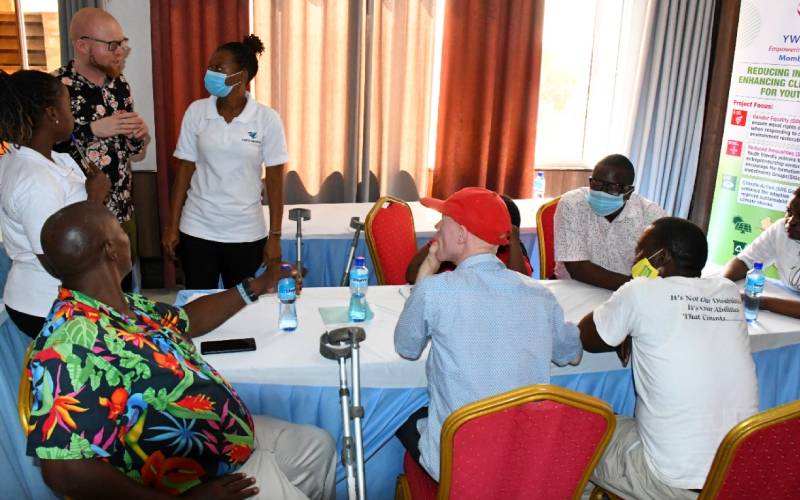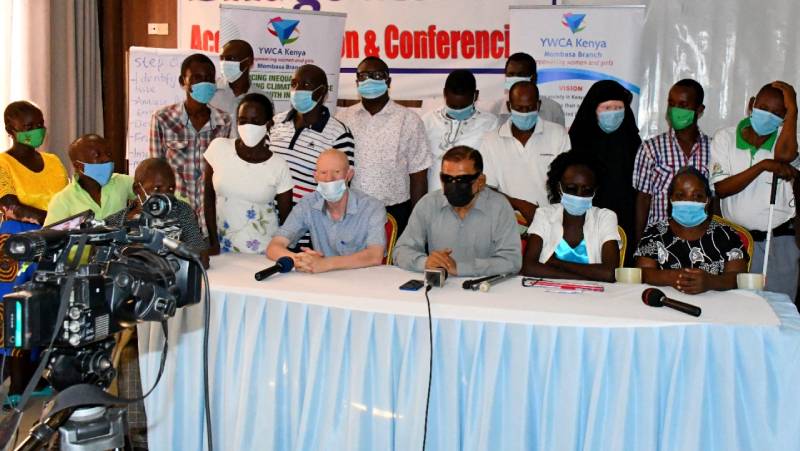
Audio By Vocalize
The first Global Disability Summit was a major milestone for disability inclusion. Held in 2018 (GDS18) and co-hosted by the Government of Kenya together with the UK Department for International Development (DFID) and the International Disability Alliance (IDA). GDS18 generated commitments aimed towards the actualization of the UN Convention on the Rights of Persons with Disabilities (CRPD) and highlighted the fact that Disability inclusion is an integral part of achieving the SDGs and delivering Agenda 2030’s vision to ‘Leave No One Behind.

Young Women’s Christian Association (YWCA) Kenya in partnership with Action Network for the Disabled (ANDY), Mombasa County Disability Leaders Forum (MCDLF), Women and Realities of Disability (WARD), Kisumu Action Disability Development Network (KADDNET), Light For The World (LFTW) have come together to establish interventions on inclusion aimed at lobbying for policy formulation and implementation at the grass-root levels as well as advocacy on the implementation of the legal frameworks that are aimed in improving the lives of the women, youth and Persons with Disabilities.
The Global Disability Summit (GDS 2022) is happening virtually in Oslo, Norway from February 15 – 17 and the partners are implementing an advocacy campaign that is bringing together Organizations of Person with Disability and Civil Society Organizations.
YWCA has initiated an approach to raise funds for providing an enabling environment for public awareness on disability rights and ensure the involvement of persons with disability and/or their representative organizations in the process of addressing stigma and discrimination against people with disabilities.
YWCA Kenya is also supporting the review of Mombasa County Disability Policy and lobbying for implementation of the 30 per cent quota allocation of Government Procurement opportunities (AGPO).

Why Participate in Global Disability Summit 2022?
GDS22 provides Organizations of persons with Disability, Civil Society Organizations, and Private sectors an opportunity to seek new commitments and concrete action to accelerate inclusive development, mobilize efforts to further the implementation of the Convention on the Rights of Persons with Disabilities (CRPD) through access, engagement and equality in line with the principle of leaving no one behind and to build back better more inclusively in the post-Covid-19 recovery strategy.
Although much has been achieved in Kenya, we still have a long way to go and we call upon the government to recommit at the Global Disability Summit 2022 the following key areas:

Way forward
Institutionalization of the standard operating procedures will fast-track and enhance the inclusivity agenda and there is a need for the Organizations of Persons with Disabilities and Civil Society Organizations to;
1. Advocate for an enabling policy, legal and resource environment for the elimination of discrimination and stigma for persons living within all their diversity.
2. Advocate for adoption and scale-up evidence-driven prevention programming that address violence, discrimination and stigma against disability and promote disability-inclusive programming.
Stay informed. Subscribe to our newsletter
3. Advocate for scale-up of comprehensive, accessible, and quality assistive technology/devices and support services for Persons with Disabilities in crisis risk reduction, preparedness and response.
4. Lobby for improved livelihood for persons with disabilities through enhanced economic opportunities. YWCA and other CSOs/DPOs will lobby for the enforcement of the 30% quota allocation of Government Procurement opportunities (AGPO) to PWDs at National and County governments and other institutions (Article 28 on social protection).
5. Lobby for Institutionalization of National Disability Inclusive Budgeting across all government departments both at the national and county level. For example, Minimum 5% employment, allocate funds for equipment, infrastructure and teacher training in inclusive rights to education for children with disability.
6. Demand for inclusive language and materials by the Government and stakeholders to promote access to information among PWDs.
YWCA will pursue for more synergies among partners to hold duty-bearers on the 2022 commitments.
Join #GDS2022 and #CommitToChange.
Article by: Young Women’s Christian Association (YWCA) of Kenya and Action Network for the Disabled (ANDY).